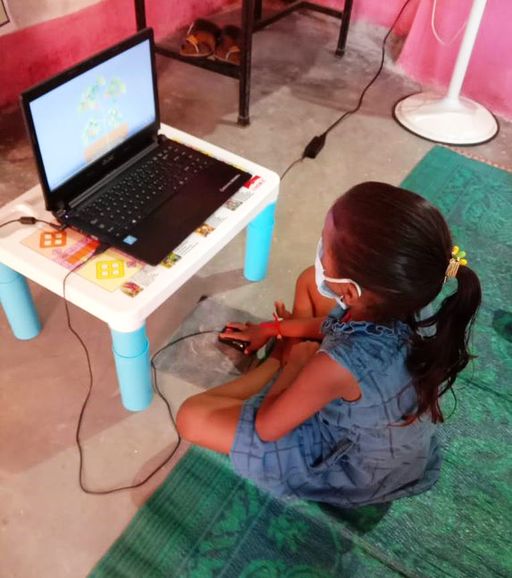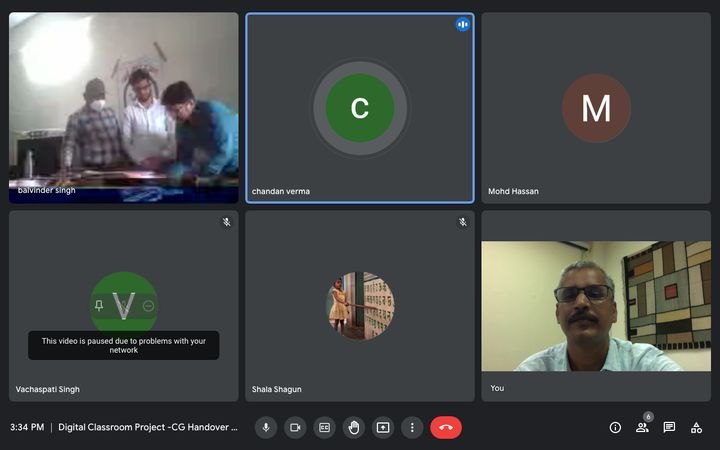Scaling up digital classrooms in Chhattisgarh

A technology-enabled classroom is the future of education. It prepares a student for future opportunities and allows them to access resources at par with the best institutions in the world.
HPPI’s Digital Classroom Project – implemented in partnership with the State Government and Microsoft – was launched in 16 government schools of the Raigarh and Mungeli districts of Chhattisgarh in the year 2019. The Project provided basic digital literacy and digital education to 2,300 students over two years through customised access to laptops. In addition, the project enrolled 800 out-of-school children in government schools and offered basic literacy to 810 women in the intervention districts.
Following the successful implementation of the project, the assets and knowledge resources such as teacher manuals and introductory videos have now been handed over to the State to ensure that digital education continues in the intervention schools and is progressively scaled up. The assets included Computer Labs with 5 Laptops, a mouse & keyboard, an internet facility, furniture for 15 children in each school, and a ‘Digital Learning Platform’ with 60 digital modules including assessments for grades I to V in English, science, and science Maths.
The assets also include a Box Solution with Laptop, LCD Projector and a projection screen for ICT-based group teaching in each school. The laptop is loaded with open-source educational content for grades I to V.
The assets were handed over to DMC Mungeli, during a virtual meet on June 30, attended by Mr. M. Sudhish, Assistant Director (Pedagogy), RGSM Raipur, Mr. Md. Hassan, Microsoft India, Mr. Vachaspati Singh, District Mission Coordinator, Mungeli, Mr. PC Divy – APC, Mungeli, Mr. Chandan Verma, National Partnership Officer, HPPI, Mr. Ramnaresh, HPPI and Mr. Balvinder Singh, Project Leader, Digital Classroom Project, HPPI.

The Samagra Shiksha Mission, Chhattisgarh, has recognised the project’s achievements and directed the District Mission Coordinators for both districts to designate joint Nodal persons- APC (Teacher Training) and MIS-in-charge in both districts to continue to implement the project. The 84 government school teachers who were trained from 16 schools as part of this project should be used to continue teaching digital literacy to other schools, and the 16 selected schools should be treated as Learning and Exposure Centres.
The Government of Chhattisgarh’s appreciation and support gives us great hope that the Project’s goal of providing a long-term solution towards developing digital classrooms has been met, and that students will continue to receive a quality education in current, technology-enabled classrooms.
